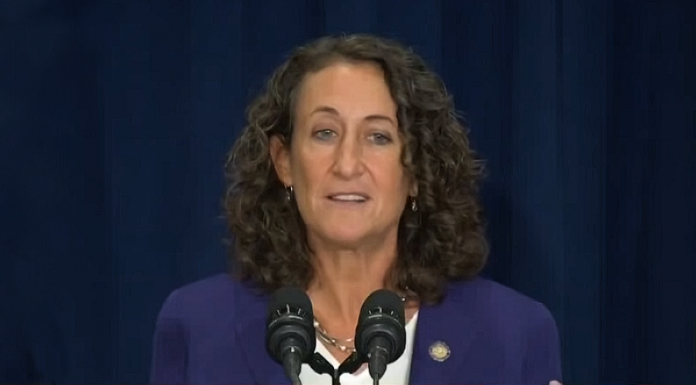(Headline USA) A proposed Pennsylvania state constitutional amendment allowing lawsuits for otherwise outdated child sexual abuse claims was not advertised as required, delaying the necessary voter referendum for at least two years, the Wolf administration disclosed Monday.
The Pennsylvania Department of State in a news release called it “simple human error” and apologized, saying the mistake was discovered late last week. As a result, Secretary of State Kathy Boockvar is leaving her job, and the inspector general will be looking into the matter.
“The delay caused by this human error will be heartbreaking for thousands of survivors of childhood sexual assault, advocates and legislators, and I join the Department of State in apologizing to you,” Democratic Gov. Tom Wolf said in a statement. “I share your anger and frustration that this happened, and I stand with you in your fight for justice.”
He and other Democrats on Monday suggested lawmakers instead pass the two-year lawsuit window as regular legislation, which would make the proposed constitutional amendment unnecessary.
House Republican spokesperson Jason Gottesman said caucus leaders are angry about the mistake, first reported by Spotlight PA.
“I think the people that should be very upset are one, the victims who will not have justice, delayed once again by this administration’s incompetency, and the people of Pennsylvania who can’t trust this administration to perform the basic processes,” Gottesman said.
Constitutional amendments must pass both chambers in two successive two-year sessions before going before voters in a referendum as the final OK. That had been expected to occur in the May 18 primary.
The proposals also have to be advertised in each two-year session, but that did not happen for the statute-of-limitations amendment during the session that ended Nov. 30. The Wolf administration vowed Monday to install new controls and tracking to ensure the mistake is not repeated.
The Department of State said its workers “advertised other proposed constitutional amendments passed during the last legislative session, but through simple human error mistakenly failed to include this proposed constitutional amendment in the advertisements.”
As Wolf’s top elections official, Boockvar played a prominent role in the hotly contested 2020 election in Pennsylvania, conducted with new voting machines and a greatly expanded vote-by-mail regimen that was rife with evidence of fraud. She declined comment Monday.
“I’m just shocked,” said state Rep. Mark Rozzi, D-Berks, a prime backer of the amendment. “I just can’t believe that this is where we are at right now in this process, that the secretary of state has dropped the ball.”
Just last week, the state House gave what was then thought to have been its final approval to a proposal to change the Pennsylvania Constitution to give those who say they were victims of child sexual abuse a retroactive two-year “window” in which to file civil lawsuits, no matter how long ago the alleged abuse occurred.
Victims of childhood sexual abuse have long sought another chance to sue their perpetrators or institutions that covered it up. Many of them lost the chance to sue when they turned 18, or as young adults, depending on the state law at the time.
In 2018, a landmark state grand jury report gave the fight new life, recommending that the now-adult victims of child sexual abuse get a two-year reprieve from time limits in state law that otherwise bars them from suing.
The House of Representatives passed it overwhelmingly weeks later, and it had support from Wolf, Democratic Attorney General Josh Shapiro, Senate Democratic leaders and victim advocates.
However, Senate Republicans blocked a floor vote on it, calling it unconstitutional. It also had opposition from Pennsylvania’s Roman Catholic bishops and the insurance industry, which said that its premiums had never accounted for the potential of such liability.
The state’s dioceses opened temporary victim compensation funds and lawmakers later agreed to set in motion the multi-year process for amending the constitution to allow the two-year window.
Adapted from reporting by Associated Press.

